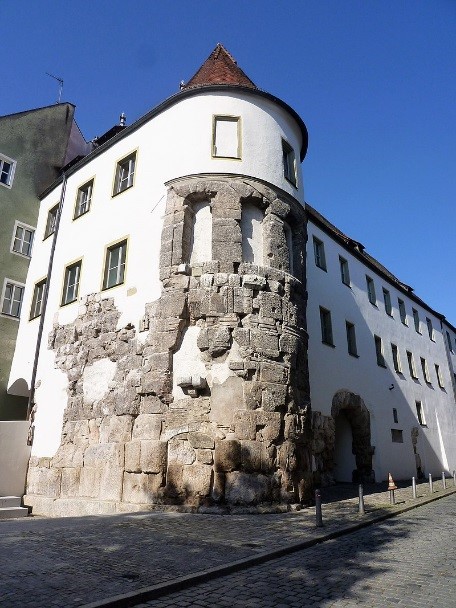
PONS Students exchange programm
PONS - Humanities and Cultural Studies
Pons means "bridge", which is exactly what the PONS project wants to be: a bridge between German universities – a bridge for students. PONS enables a temporary change of study location during studies within Germany – comparable to Erasmus on a European level.
Who is the offer aimed at? Every student in the BA programme and in the MA programme can participate in PONS.
How does PONS work?
- Choice of a host university
- Counselling interview with the respective subject coordinator
- Application procedure at the home university
- Conclusion of a learning agreement that guarantees the recognition of achievements without loss of time and points
- Study of second and minor subjects at the host university is possible without any problems
How long can I transfer?
- 1-2 semesters
- possible several times during the BA and MA programme
Why does a change make sense?
Subject-related advantages:
- Expansion of subject-specific competencies
- Getting to know other research foci, methods and subject areas
- Personal focus and specialisation
Personal advantages:
- Broadening of personal horizons without language barrier
What financing options are there?
- Baf?g entitlement remains
- Chance of a one-time scholarship of 250 euros
What do I have to do?
- Counselling interview with the respective subject coordinator
- Application consisting of the following documents:
- One-page letter of motivation
- Curriculum vitae
- Proof of academic achievements to date
- Deadlines: 15 June for winter semester, 15 January for summer semester
- Application as PDF to pons@gwdg.de
Who can I contact?
Subject coordinator for PONS Ancient History in Regensburg is Oliver Grote
Email: oliver.grote@geschichte.uni-regensburg.de
Studying Ancient History in Regensburg
The Danube town of Regensburg is the lively centre of the Upper Palatinate and, in addition to a wealth of historical buildings, offers a wide range of cultural and entertainment activities. Some testimonials even report the highest density of pubs in Germany - a source finding that conscientious scholars should verify in autopsy! For students of history (perhaps) even more important: the city can look back on a long and varied history, which is indicated not only by the largest preserved medieval old town in Germany (UNESCO World Heritage Site), but also by the name 'Regensburg', which goes back to the Roman fort Castra Regina of the 2nd century AD. The traces of the Romans and Celts in and around Regensburg are omnipresent, so that a large field for provincial historical studies opens up.

The Porta Praetoria of the Roman legionary camp from the 2nd century AD, integrated into the walls of the Bishop's Court in the 17th century.
Image: Rosa-Maria Rinkl [CC BY-SA 4.0 ( https:// creativecommons.org/licenses/bysa/4.0)], from Wikimedia Commons
Due to the university's special location in the city of Regensburg (castra Regina), which dates back to a Roman legionary camp, regional history traditionally plays a special role at the department and is pursued, among other things, through the navis lusoria project. Further research focuses are in the area of cultural, social and political history as well as ancient landscapes. Current projects deal, for example, with the following topics:
- Polities and Ethnicity in Archaic-Classical Greece
- The Political and Social System of the Roman Republic
- Roman Social History
- Myth and Cult
- History of Emotions
- Urban History
- History of Maritime Trade and Economy in Antiquity
- Gender History
In addition to the variety of topics, the lecturers of the department teach various methodological and theoretical approaches to the ancient historical material, from systems theory to sociological praxeology to the theory of cultural memory. Such theories and methods help to deal critically and productively with the source material - in our opinion one of the most important skills for future historians.

Our Navis Lusoria 'Regina' in service.
One of Regensburg's unique selling points is certainly the Navis Lusoria project, in the context of which a Roman river warship was reconstructed - at which university can one attend exercises that take place with and on a boat and deal with, for example, "ancient boat building" or "navigation in theory and practice"?
The interdisciplinary Centre for Classical Studies is also exceptional, as it is dedicated not only to the genuine characteristics of ancient cultures, but also to the connections between ancient and modern civilisations, i.e. researching antiquity as a reference system for modernity. In addition to Ancient History and Classical Archaeology, other departments involved in this centre include Religious Studies, Political Science, Philology and Philosophy.
In general, the University of Regensburg offers a stimulating learning and research environment. This is not least due to the cooperation with the many neighbouring disciplines of ancient history (Latin and Greek philology; classical archaeology; prehistory and early history) as well as with the other historical departments. In Regensburg, these include, in addition to the areas classically divided according to epochs, the subjects of Eastern and South-Eastern European History, European History of the 19th and 20th centuries, Economic and Social History and Social Anthropology.

Image: CC BY-SA 3.0, commons.wikimedia.org/w/index.php
So if you would like to deepen your knowledge of Ancient History with a young team of lecturers with a wide range of research foci and theoretical approaches, or if you would like to explore new focal points and topics (e.g. for theses) - and all this in one of the most beautiful cities in Germany - you should consider a study visit to the Chair of Ancient History at the University of Regensburg!
Contact:
Dr Oliver Grote



